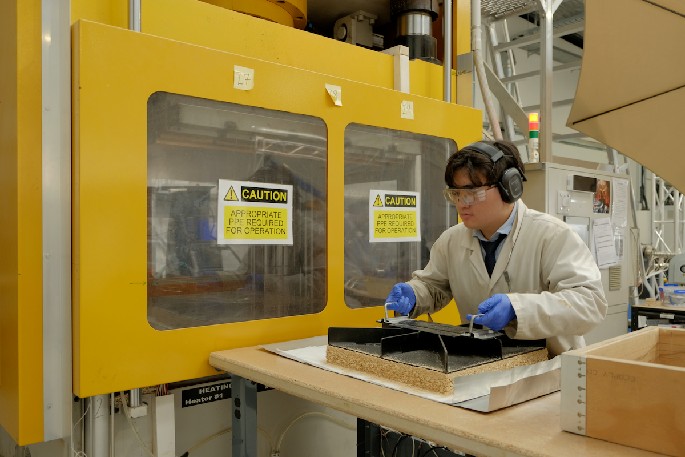This Content Is Only For Subscribers
Nilo, the New Zealand-based clean tech company tackling the global plastic waste crisis, has achieved a huge milestone in its mission to turn plastic waste into a valuable industrial resource.
The company has successfully validated that its low-carbon adhesive, derived from hard-to-recycle plastic waste, can now be used in engineered wood products—a huge step in its journey toward a fully low-carbon, formaldehyde-free future.
Mike Maunsell, chief executive of Nilo says “Achieving the goal that we’ve just achieved in terms of validating that we can convert plastic waste into a wood fibre board adhesive and it’s able to be sprayed because that’s a critical component or requirement for the wood fibre board industry,”
The adhesive is designed for hybrid use initially, with Nilo’s long-term vision firmly set on eliminating harmful traditional chemicals. By replacing conventional formaldehyde-based adhesives, the company hopes to deliver both environmental and health benefits on a global scale.
While born in New Zealand, Nilo’s ambitions extend far beyond its home market. “The purpose of Nilo is to help solve the world’s plastic waste catastrophe, so it’s not just New Zealand. In fact, the level of investment required to get to this point, we couldn’t justify it if we were just going to service the New Zealand market. So our goal here is for a New Zealand-based company to take our technology to the world that will help the world solve what is a major environmental catastrophe,” Mike says.
Nilo has already attracted heavyweight backing from global players, including IKEA. “You know, we’ve been incredibly lucky to attract IKEA as an investor, so we kind of feel we’re doing our part to reinforce the brand rather than delete it,” he says.
Waste as a commodity, not a problem
The company’s technology is driven by a simple yet powerful philosophy—waste should be seen as a resource, not a burden. We see that as an important way to show the world that actually, you know, waste doesn’t have to be waste, but it can be actually quite a valuable commodity,” Mike says.
But Nilo’s ambitions go beyond its own operations. “So, currently less than 9% of plastic waste is recycled worldwide, and that needs to improve substantively before we can solve this problem. So, Nilo won’t do it on our own. We need to inspire and encourage other parties to do it,” he says.
Clean tech without the green premium
Nilo is determined to ensure sustainability doesn’t come at a prohibitive cost. “The key thing for us is that plastic, well any green initiative, we have a strong belief that if you ask for a green premium, you’re not going to be as successful as you could be, and so it’s a critical thing to show the world that clean technologies don’t need to be expensive, and more expensive than the market incumbent. That’s a really critical mantra for us internally. We don’t want to attract a premium if we don’t have to,” says Mike.
This philosophy has been built into the company’s DNA from the start. “If you build it into what you’re doing from day one, then it’s not a problem for you. It’s part of our process. It’s this refinement that we’re contemplating going to be price acceptable or not, and so you just build it into what you’re doing rather than it’s something you think about later,” he says
Next stop: Europe and beyond
With its milestone achieved, Nilo is now moving into critical global trials. “The next one is that we’re going up to Europe in October and we’ll be doing some trials in Germany and Poland to validate the findings that we’ve got here at our laboratory in New Zealand,” Mike says.
The company is partnering with Scion Laboratories, a New Zealand Crown entity, to support the validation process. “After that we’re starting to do some market trials and that’ll start occurring later this year and early next year. And then we’ll increasingly do more and more of those trials and at larger scale over the course of the next 18 months,” he says.
“So that’s going to validate the technology in the marketplace rather than just in our lab. And then in parallel to that we’re building our first demonstration facility over the next 18 months, which we’re planning to put in South Auckland.” Mike says.



